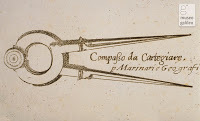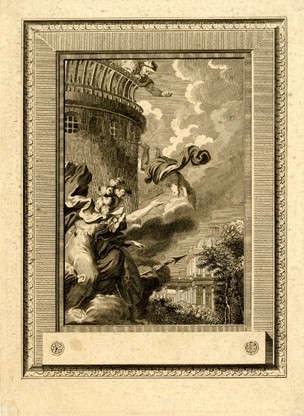 Kalliope’s
Comments
(group member since Aug 28, 2018)
Kalliope’s
Comments
(group member since Aug 28, 2018)
Kalliope’s
comments
from the Ovid's Metamorphoses and Further Metamorphoses group.
Showing 101-120 of 610
 Thank you, RC for the images.
Thank you, RC for the images.Since I am into Rubens lately and I think this is a glorious painting, let me try and post a larger version in the thread.

It is from 1615, clearly an 'early' painting, and is now in the Met in NY.
 Roman Clodia wrote: " links Hercules' well-known Labours with the labour of women in childbirth.
Roman Clodia wrote: " links Hercules' well-known Labours with the labour of women in childbirth...."
I have just read the first section, and again, we 21st readers can feel a bit disconcerted when facing Ovid's assumption that his readers are very comfortable with Hercules and his complex story.
Thank you for the Ali Smith reference, RC. I have read only one of her books... this will have to go to my shelves.
 Another Ovidian thing.
Another Ovidian thing.I am listening to a lecture on Rubens (Prado again) and the Curator (I think RC would love to listen to this) says that Classical Mythological Literature, oral and written, is a kind of literature that gives a great deal of liberty to the 'conductor' or writer, or artist, and this makes that it is continuously reinterpreted, so that it doesn't go out of fashion. Each new 'conductor' adapts it to the concerns of the moment.
Nothing new for us here, but I loved listening to this.
The Curator is presenting Rubens as one such 'conductor', not just an illustrator.
Rubens was exceedingly cultivated, and in particular highly versed in ancient culture (his brother Philip was the Professor of Latin Philology in the University of Leuven). When young, Rubens and his friends played the game of telling modern stories by means of quotes of classical texts...
 Roman Clodia wrote: "Welcome back, and how interesting, Kalli. Maybe you'd understand some of it anyway?"
Roman Clodia wrote: "Welcome back, and how interesting, Kalli. Maybe you'd understand some of it anyway?"Yes, I may try to go on the 10th.
 Hello everyone... I am finally coming back... But before I post on this actual book, I have received an email from the Prado advertising the visits to some Ovid paintings, explained in LATIN.
Hello everyone... I am finally coming back... But before I post on this actual book, I have received an email from the Prado advertising the visits to some Ovid paintings, explained in LATIN.I wonder if I ought to try one of them, even if I don't understand much.
https://www.museodelprado.es/recurso/...
 I am going away for just over one week, but I will try not to disconnect entirely from the Group during this time, although I will be less active.
I am going away for just over one week, but I will try not to disconnect entirely from the Group during this time, although I will be less active.There are more paintings I wanted to post on the earlier themes in this Book.
 Roman Clodia wrote: "
Roman Clodia wrote: "For a C20th 'psychological' portrait of The..."
I back up RC's recommendation of Mary Renault
I think I mentioned her when we discussed The Golden Fleece, although I am not sure Jim would like her books. I place her in a similar category to Robert Graves
But I read them both a long time ago.
 Jim wrote: "Two supposed mysteries concerning Ovid continue to intrigue us: the reasons for his exile (in his words "carmen et error") and the disappearance of his poem "Medea". I have just completed reading J..."
Jim wrote: "Two supposed mysteries concerning Ovid continue to intrigue us: the reasons for his exile (in his words "carmen et error") and the disappearance of his poem "Medea". I have just completed reading J..."Thank you, Jim. I will add your recommendation to the Shelves of the Group.
 Peter wrote: "
Peter wrote: "Kalliope, you just proved that Ovid travelled the Atlantic even earlier than the Vikings :-) I..."
Thank you, Peter... In this group we are venturing, literally, into unchartered territories....
We ought to add Zoology to the Arts, Music and Literature, when exploring the repercussions and further transformations of Ovid's work.
I will add your book to the Group's Library.
 Another note discusses the use of the word 'opifex' which is used in only one other time. In this book it is used when presenting Daedalus as a creator. The other time was in Book 1, in the account of the Creation.
Another note discusses the use of the word 'opifex' which is used in only one other time. In this book it is used when presenting Daedalus as a creator. The other time was in Book 1, in the account of the Creation. Ovid seems to be making then a parallel between the man who strives for freedom and the creation of a better world.
And then goes on to discuss the three people who observed father and son flying - the fisherman, the shepherd and the plowman - all 'prototypes' of the Silver Age as presented in Book 1.
RC would know more about this, but it seems Ovid is then alluding to the 'Homo faber' controversy - which it seems referred to the idea that Romans accepted only those tools that Jupiter allowed humans to use in the Silver Age - those for farming and raising cattle.
This takes me back to my comment 55 above - and Bruegel - he knew very well what he was doing when he designed his composition.
 My notes make also a parallel between the frustrations felt by Io, and Philomela etc.. and Daedalus who feels trapped.
My notes make also a parallel between the frustrations felt by Io, and Philomela etc.. and Daedalus who feels trapped.I however don't entirely agree in that the frustration in the others we have (particularly RC has insisted on this) noted that it was the loss of SPEECH, while in this case it is one of mobility.
A different category but with some points in common.
 Daedalus is also an interesting figure because of his being an 'artist'. We have already encountered Vulcan, who did the Gates of the Realm of the Gods, and then Arachne, the Minyades and Marsyas.
Daedalus is also an interesting figure because of his being an 'artist'. We have already encountered Vulcan, who did the Gates of the Realm of the Gods, and then Arachne, the Minyades and Marsyas. I also find interesting that he is presented both under a benevolent and a less sympathetic light. We feel sorry for him for what happened for his son, but then the episode with his nephew is not a very glorifying one, to put it mildly.
The root of the problem with the nephew is also jealousy - the Perdix invented the saw and then the draftsman's compass. Rivalry amongst artists.

 The story of Perdix was new to me.
The story of Perdix was new to me.Copy of a plate engraved by Louis Legrand after Eisen. 1774-78. British Musem.

 Roman Clodia wrote: " I've read somewhere that Titian's Latin was atrocious! ..."
Roman Clodia wrote: " I've read somewhere that Titian's Latin was atrocious! ..."Oh, interesting.. Not so with Rubens.
 Roman Clodia wrote: "It can be disconcerting if we expect a kind of encyclopaedia or handbook of classical myths - and instead we get Ovid's partisan, creative, subversive and active set of re-writings.
Roman Clodia wrote: "It can be disconcerting if we expect a kind of encyclopaedia or handbook of classical myths - and instead we get Ovid's partisan, creative, subversive and active set of re-writings. ..."
Absolutely... I am just having to deal with the fact that I am not the cultivated person that Ovid was writing for.. But I am thoroughly enjoying the double discovery...
 What I have really enjoyed in the Ovid description is the amount of detail given to the scenery - with the fisherman, the shepherd and the ploughman... I had always thought that Bruegel was being very original in pushing the mythological scene to the background and giving so much importance to a ploughman first, and on more secondary position, the fisherman... And now I discover that it was all spelled out in Ovid...
What I have really enjoyed in the Ovid description is the amount of detail given to the scenery - with the fisherman, the shepherd and the ploughman... I had always thought that Bruegel was being very original in pushing the mythological scene to the background and giving so much importance to a ploughman first, and on more secondary position, the fisherman... And now I discover that it was all spelled out in Ovid...Wonderful !!!
 Roman Clodia wrote: "Kalliope wrote: "I have been a bit disappointed with the Minotaur, Theseus in Crete, Ariadna and her abandonment in Dia (I always thought it was in Naxos"
Roman Clodia wrote: "Kalliope wrote: "I have been a bit disappointed with the Minotaur, Theseus in Crete, Ariadna and her abandonment in Dia (I always thought it was in Naxos"Ovid does rather like to avoid some of th..."
Thank you, as I am currently reading the National Gallery Guide, I just happened to read the entry to this painting this morning, and it mentions Catullus. It also includes Ovid, but Ovid and my reaction was to think - well, not much.
You are right in that Ovid avoids the 'big' stories... the most blatant example for me so far was the Medea episode... the children episode seemed almost a marginal comment.
 Daedalus instructions to his son, to follow the 'middle way' and not get too high or too low recall the instructions of Helios to Phaeton in Book 2.
Daedalus instructions to his son, to follow the 'middle way' and not get too high or too low recall the instructions of Helios to Phaeton in Book 2. And funny that he is instructed not to look at the Great Bear (ie: Callisto).
 With Daedalus and his son Icarus, we come to another very famous painting, which I saw recently in the Bruegel major exhibition in Vienna.
With Daedalus and his son Icarus, we come to another very famous painting, which I saw recently in the Bruegel major exhibition in Vienna.Pieter Bruegel the Elder. Landscape with the Fall of Icarus. 1558. Brussels, Royal Museums.

Icarus, or rather his legs, are seen in the lower right as he is falling into the sea.
 On Daedalus... and the sentence 'He now turns his mind to art unknown and makes nature anew' - a footnote in my edition takes us to James Joyce.
On Daedalus... and the sentence 'He now turns his mind to art unknown and makes nature anew' - a footnote in my edition takes us to James Joyce.I am quoting:
The 'makes nature anew'- As did James Joyce (or so he hoped) in his novel A Portrait of the Artist as a Young Man as an epigraph for which he used the preceding line 'he now turns his mind to arts unknown'.
Ovid then goes on about the feathers of Daedalus... I used a photo of a feathered wing for my review of 'Portrait'.

